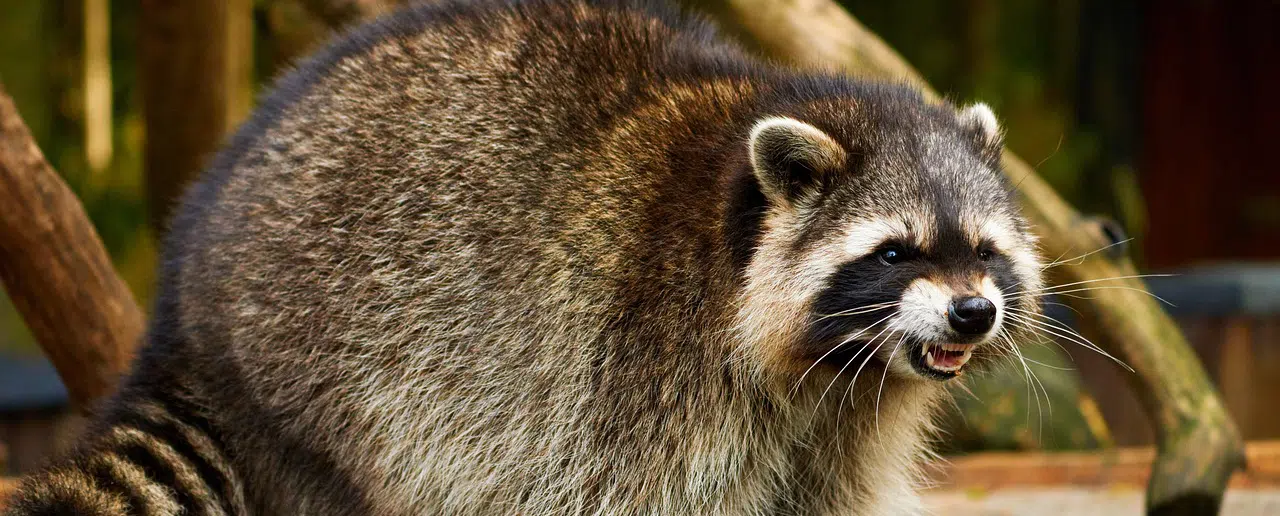Rabies is a serious viral infection that affects both animals and humans, with one of the most common carriers being raccoons in the wild.
But how do you know how to tell if a raccoon has rabies? Knowing the signs and symptoms can be crucial for your safety and that of your pets.
Let's explore the behavioral and physical clues that can indicate a raccoon may be infected with rabies so you can keep yourself and your family safe.

Understanding Raccoon Rabies
What is Rabies?
Rabies is a serious virus that affects the brains of animals and humans. It usually spreads through the saliva of an infected animal, often through bites.
It's important to know that not all animals have rabies, but it's a dangerous disease if they do. Additionally, it can be hard to know how to tell if a raccoon has rabies, so the safest bet is to assume they do.
Rabies in Raccoons
Raccoons are one of the most common carriers of rabies in the wild.
This doesn't mean every raccoon has rabies, but those that do can be a real risk to people and pets. Raccoons with rabies can act very differently from healthy raccoons, which is why it's important to know the signs.
How to Tell if a Raccoon has Rabies
Behavioral Changes
One of the first things you might notice in a raccoon with rabies is a change in its behavior. Healthy raccoons are usually shy and will avoid people.
However, a raccoon with rabies might seem unafraid or even aggressive towards humans. They may also appear confused, sluggish, or disoriented and wandering into open areas or getting stuck in places they normally wouldn’t go. Also concerning may be strange sounds and noises. A little chatter, especially if with other raccoons is normal, but strange noises while out and about is not.
Physical Symptoms
Raccoons with rabies might show some physical signs too. Look out for things like foaming at the mouth or excessive drooling. This happens because rabies can make it hard for them to swallow.
Another symptom to watch for is paralysis, particularly in their hind legs, or any kind of uncoordinated movement.
Remember, never approach a wild raccoon, especially if it's acting strangely. Always call animal control or a wildlife expert if you're concerned about a raccoon or any wild animal in your area.
Avoid Contact
If you see a raccoon, the safest thing to do is avoid it.
This is especially important if the raccoon is acting strangely or seems unwell. Remember, raccoons can be dangerous if they’re scared or sick, and getting too close could put you at risk.
Always keep a safe distance and make sure your kids and pets do the same.
Contact Animal Control
Whenever you encounter a raccoon that you suspect might have rabies, it's crucial to contact animal control immediately. They are trained to handle wild animals safely and can take the necessary steps to protect the community. When calling, make sure to describe the raccoon's location and behavior so they can respond effectively.
Hawkeye Animal Control is the only pest bird and animal and wildlife control company designated "Certified Wildlife Control Professional.”
Preventing Rabies Exposure
Vaccination and Pet Safety
One of the best ways to prevent rabies is to make sure your pets are vaccinated.
This protects them if they ever come into contact with a wild animal that could be carrying the disease. Always keep your pet's rabies vaccinations up to date, and consider keeping them indoors at night when raccoons are more active.
In order to prevent rabies exposure yourself, we always recommend staying far away from raccoons. If you need to keep an eye on them, have a camera set up in the area they’re frequenting.
Securing Your Property
Speaking of prevention, secure your property.
Make sure your trash cans have tight-fitting lids to avoid attracting raccoons with food smells.
Also, consider using fencing to keep wild animals out of your garden and away from your home. Removing food sources and blocking access points can greatly reduce the chance of raccoon visits.
Frequently Asked Questions: Do Raccoons Carry Rabies?
Do raccoons have rabies?
Yes! Raccoons can carry rabies, which is why it’s important to assume that every wildlife encounter you have with them could put you and your pets at risk. As mentioned, it can be difficult on how to tell if a baby raccoon has rabies, so it’s always important to bring in a professional.
When are raccoons most active?
Raccoons are typically most active in spring and summer when the weather is warmer and they are breeding and raising their young. However, they can be seen year-round.
What should I do if I see a raccoon in my yard?
It's best to keep a safe distance and not attempt to feed or touch the raccoon. Secure your garbage and remove any food sources. If the raccoon seems sick or does not leave, contact animal control for assistance.
Are children at a greater risk of rabies?
Children might be at greater risk because they are more likely to approach animals and less likely to report bites or scratches. Educate children to never touch unfamiliar or wild animals.
Is there a cure for rabies?
Once clinical signs of rabies appear, the disease is nearly always fatal. There is no effective treatment at this stage, which is why prevention and immediate post-exposure treatment are crucial.
What should I do if I’ve been bitten by a raccoon?
Immediately wash the wound thoroughly with soap and water for at least 15 minutes. Seek medical attention right away, even if the wound seems minor.
A healthcare provider will assess the need for a rabies vaccine and other treatment.
Call Hawkeye for Humane & Effective Raccoon Prevention!
Knowing how to tell if a raccoon has rabies is the first step, but it doesn’t keep them away.
If you’re dealing with frequent raccoon visitors or want to take extra steps to secure your home, consider calling a professional wildlife control service like Hawkeye.
Our humane and effective solutions will remove nuisance raccoons and other wildlife and help safeguard your home. Ensuring that your property is less attractive to raccoons will go a long way in preventing repeat offenders.
By taking these steps, you can help protect yourself, your family, and your pets from the dangers of rabies and reduce the risk of encountering raccoons on your property.














